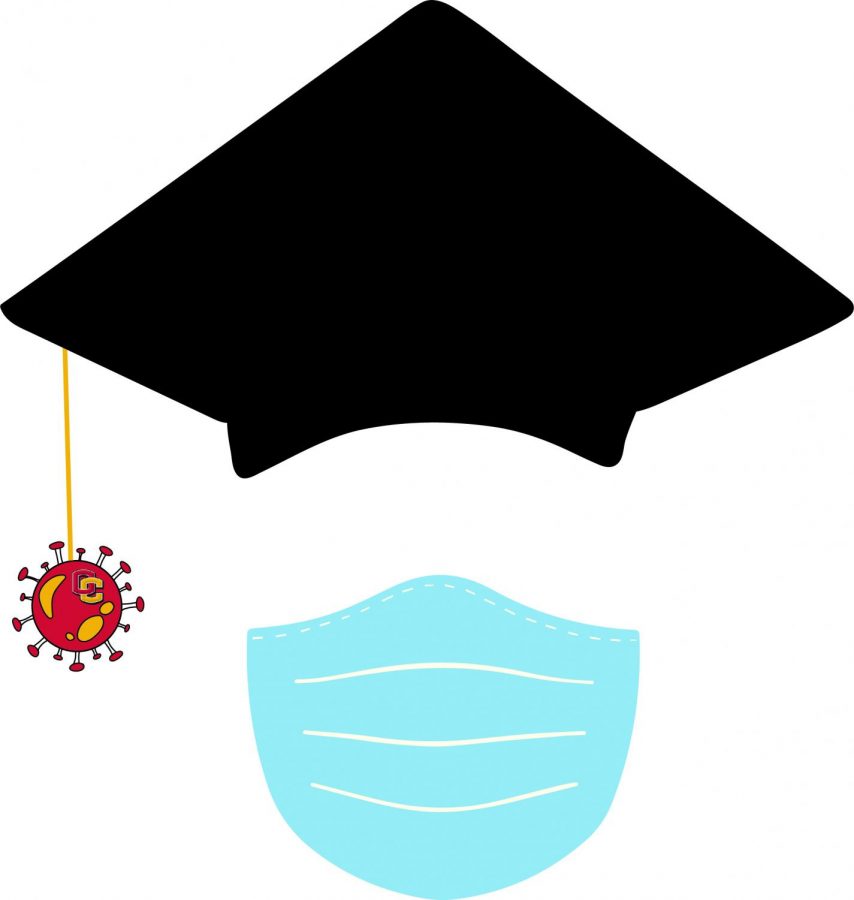Planned ObieSafe Protocol Updates To Take Effect Sept. 11
Students shared their thoughts on fall semester COVID-19 protocols.
ObieSafe’s COVID-19 policy for this fall is a shift from previous semesters. Return testing was not required for students at the beginning of this year, and masking will be entirely optional starting Sept. 11 — unless there is a surge in cases and ObieSafe decides to reevaluate.
“Throughout the summer, we closely monitored COVID-19 and CDC guidelines,” the ObieSafe team wrote in an email to the Review. “In light of this information, coupled with our vaccination rates and the availability of rapid home antigen tests, it was decided not to require testing prior to the start of the semester.”
Students who have tested positive for COVID are expected to retrieve food for themselves, and temporary housing for COVID-positive students is no longer available. For students whose roommates have tested positive, temporary housing is only provided if the student has a “relevant accommodation” and housing is available.
Per the ObieSafe email released to students in August, “If only one roommate tests positive, healthy roommates should wear a mask and maintain social distance as much as possible.”
The ObieSafe team added, “We have a limited supply of housing, which varies day to day. We will work with immunocompromised students who feel the need to seek temporary housing while a roommate recovers from COVID.”
Further, ObieSafe is now placing the responsibility of contact tracing onto individual students.
“Oberlin is maintaining minimal contact tracing and is asking for your independent cooperation and ability to notify your close contacts on your own,” ObieSafe informed students in its automatic email response. “As we prepare to start the new academic year, your health and wellbeing remain our top priority.”
The ObieSafe email went on to outline several new policies, such as: “If and when requested to wear a mask by another member of the Oberlin community with whom you are interacting, please comply.”
Some students, though, are not satisfied with the new potential policies. College second-year Sophie Raymond, for one, is concerned about the new COVID policy — she feels that immunocompromised students like her were not considered in the College’s plan. Raymond feels that too much responsibility is placed on immunocompromised students’ shoulders to advocate for themselves when there should be a policy in place that protects them.
“In the past, I felt very safe here at Oberlin with both the masking and the required return testing, especially after breaks,” Raymond said. “But now that neither of those things are going to be happening, I’m really worried for both my safety and the safety of other people who are in my same situation.”
Raymond considers the policy of remaining in the same room with COVID-positive roommates to be particularly alarming. “To me, that’s just nonsensical,” she said. “You can’t wear a mask when you’re sleeping. You can’t guarantee free flow of air in a single room.”
Raymond also brought up the accessibility issues with requiring an official diagnosis in order to receive necessary accommodations. “I think actions speak louder than words,” Raymond said. “I think that Oberlin can say that they are supporting all of their student body as much as they want, but to me, these actions of dropping the COVID guidelines tell me that the administration doesn’t care about my safety or the safety of other people in my situation.”







